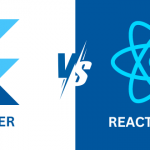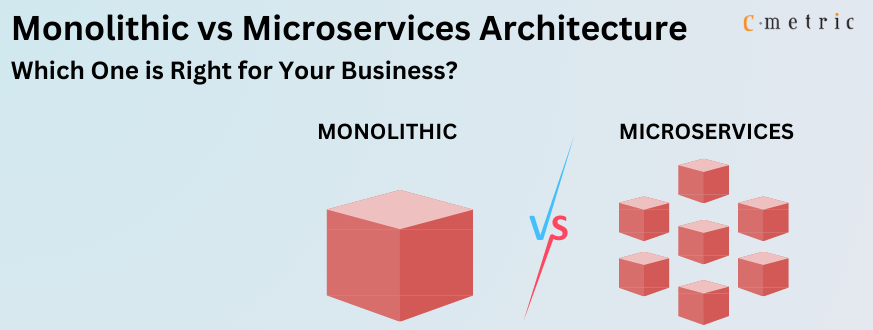The tech giant Microsoft developed .NET in 2002. Since then, it’s been the most powerful, versatile, scalable, and high-performing desktop app development platform. It can be seen that several desktop app development firms focus majorly on this .NET framework due to its resourcefulness. Moreover, it’s also considered lucrative and consistent for companies.
Every software development firm loves .NET technology, as customers prefer less complex yet higher-level coding and cost-efficiency. Now, you must be rummaging for more reasons to opt for the .NET framework as your preferred desktop application development technology.
Today’s blogpost will guide you to learn more about the .NET framework and elaborate on why it’s the first & foremost preference for every app developer. So, let’s get started!
.NET Framework: Overview
.NET is a top-notch software development framework that allows app developers to build applications for cloud, web, desktop, smartphone, IoT, and microservices. This leading platform has been open-source and free since 2014, with over 100,000 contributors worldwide.
Being a leading platform for desktop app developers, .NET provides reusable parts, libraries, a wide array of tools, and programming languages to create, assemble, and deploy advanced desktop apps for different industries.
Categories of .NET Technology Development
These are the top 3 .NET technologies helping a developer in building an application:
-
Webforms
It assists in building advanced and energetic applications. Moreover, it helps provide enhanced control to the programmers, and requires minimal coding as opposed to the MVC.
-
Web pages
It aids the user in practicing PHP with HTML. Users can quickly build web pages with lower coding endeavors via the fastest application movement.
-
MVC
It enables app developers to gather, code, and examine different types of applications in the model. This significant framework type doesn’t require the programmer to constantly worry about ViewState & IsPostBack. They can develop applications in their reasonable workflow and result in maximum efficacy.
.NET Programming Languages
.NET platforms provide app developers the independence to work collaboratively with their selected programming languages. Besides Visual Basic, CLI, F#, and C# languages, tech companies & app developers have built other coding languages for advanced desktop application development.
-
C#
As the most outstanding programming syntax for desktop apps, C# makes it very simple to create desktop applications. Due to its comparative syntax to C, C++, Java, and JavaScript, C# can be used by developers with those backgrounds.
-
Visual Basic
It’s an easy language with comprehensible syntax. It eases the type-safe .NET application development and underpins object-based notions. The capability of generating UI-based apps and Windows forms is one of Visual Basic’s most fabulous amenities.
-
CLI
The newest .NET technologies underpin numerous languages, such as Eiffel, PowerBuilder, ClojureCLR, and IronPython. It’s because of the implementation of CLI, which is a leading model for building .NET-compatible languages by .NET.
-
F#
It’s pronounced F-sharp, an open-source .NET framework with a convenient standard library, lightweight syntax, and a powerful programming regulation method. F# requires minimal code lines than other languages to generate a mission-critical and credible .NET desktop app.
Major features of .NET Development Tools for Desktop App Development
These are the top .NET framework features that help build your desktop applications quickly:
-
Memory Management
.NET desktop development consists of the utilization of Common Language operation time for effective memory management on the side of a desktop application. The Garbage Accumulator Program can scan idle system resources periodically and release memory when an app operates in several programming languages.
-
Integrated Development Environments
Desktop app developers utilize this feature, for example, IntelliJ IDEA, while building apps. The .NET desktop app tools provide a powerful IDE, which helps enable the software engineers to build applications from the beginning by dragging & dropping elements.
-
Model-View-View-Model Design Pattern (MVVM)
MVVM clarifies the job of creating an app. This fantastic pattern lets you quickly distinguish between application logic, state, and behaviors. Consequently, programmers can simply exchange their code across many devices and write transparent and manageable code.
-
Side-by-side Execution
Programmers can bypass potential version frictions by allowing several Common Language Runtime categories to synchronize on a similar platform, and all credits go to the .NET desktop app development framework. Such a top feature encourages programmers to operate several repetitions of similar apps on the congruous .NET version.
.NET Framework Programming Platform – The Definitive Guide
Why should you opt for .NET Framework?
-
Multi-Targeting
.NET platform offers the Portable Class Library, where programmers can utilize this robust feature to generate assemblies. These are capable of being successfully executed on various.NET framework channels, including Windows Phone, Windows 10, and Xbox 360.
-
It’s object-oriented
The underlying principle of.NET is object-oriented programming. OOP is a development approach for apps that separates the software into tinier portions that are easier to manage. It separates information into data fields and explains how the objects behave through the introduction of classes.
OOP manages the code, addresses recurrent problems, and renders testing simpler. As a consequence, it requires less coding and offers programmers more straightforward coding.
-
Active Microsoft support
Microsoft offers a complete and systematic environment to programmers. It also provides a wide array of services, such as frameworks, IDEs, and cloud services. The organization developed its environment by shifting to .NET Core which concentrated on performance and Cloud developments.
-
Complete Safety & Security
Different industries utilize the .NET development framework due to its maximum security. Managed code and CLR are the two significant features offering core safety protocols, including code access safety & role-based safety.
-
Cross-Language Agreement
CLS and CLR enable the .NET framework to communicate with code written in a distinct programming language. This is how the feature lets reusability and performance of the code with distinct languages.
-
Scalability and Stability
.NET framework provides maximum scalability and stability than other available frameworks. Its main object interface allows you to reprocess objects to create a brand-new desktop application and improve the object code sans affecting the entire software. Consequently, you may quickly escalate your desktop applications whenever required.
-
Platform Independence
Due to its platform independence, you can code and run different applications on countless platforms using these .NET development tools. Because of the.NET framework and implementation, programmers can create and run code on a variety of platforms with only one set of coding scenarios and building tools.
-
Optimized Performance
The .NET desktop app framework places an emphasis on speed and performance, which helps developers work more efficiently and faster. Faster development and improved functionality are the consequences of standard APIs, Generics, Language Integrated Query, asynchronous programming, and a wide assortment of library classes.
-
Hassle-free Integration
The programmers can quickly get in touch with the .NET desktop app to a broad collection of MS products, including cloud platforms, servers, email apps, and more. Consequently, you may quickly streamline the application with a single login portal, which leads to easy team interaction and data sharing.
Top Reasons to Combine React with .Net Core for Web Development Project
Conclusion
This .NET framework provides several language supports and possesses a large group of desktop application developers. The top reasons for choosing .NET for building desktop apps are demonstrated above, confirming that this ecosystem’s future is more beaming than ever before.
With this leading framework, every small & large enterprise builds trustworthy, scalable, and robust desktop applications. Lastly, it’s predictable that .NET will have an optimistic and well-grounded future. If you plan to develop a web-based app using .Net, the answer to your question is C-Metric the No. 1 Software Development Company in New Jersey .














